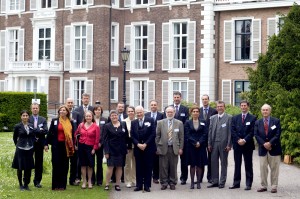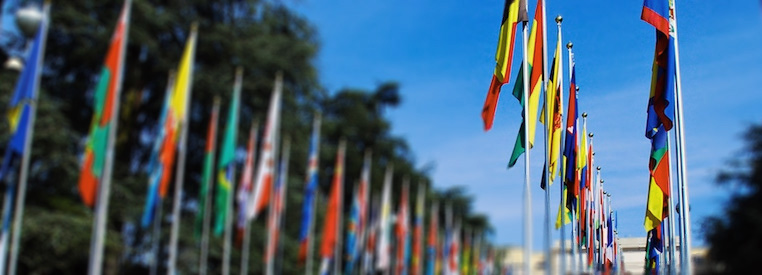 The 2009 Annual Colloquium on the role of government departments in the formulation and implementation of human rights considerations in foreign policy was held 27-28 May, at the Clingendael Institute in The Hague, at the invitation of the Dutch government.
The 2009 Annual Colloquium on the role of government departments in the formulation and implementation of human rights considerations in foreign policy was held 27-28 May, at the Clingendael Institute in The Hague, at the invitation of the Dutch government.
Colloquium 2009 | The Hague | Agenda
Skip to a section:
- Review of the work of the Human Rights Council
- New developments in dealing with the human rights obligations of non-state actors
- The evolving doctrine of the Responsibility to Protect
- Compensation and redress for violations of human rights
I. REVIEW OF THE WORK OF THE HUMAN RIGHTS COUNCIL
What are the positive and negative trends in the Council’s recent sessions? Should members be concerned about recent practices regarding access of civil society and grouping of debate over country situations?
What changes in membership of the Council would be helpful in light of the new climate of multilateral cooperation?
What were the positive and negative outcomes of the Durban Review Conference held in April 2009?
What can be done to improve the Universal Periodic Review?
II. NEW DEVELOPMENTS IN DEALING WITH THE HUMAN RIGHTS OBLIGATIONS OF NON-STATE ACTORS
What are the remedies available for victims of human rights violations involving non-state entities, whose acts are not attributable to any state, including terrorist groups operating from the territory of a state that claims to have no involvement with the entity, such as Pakistani terrorists responsible for the attack on Mumbai?
What can governments do to move forward the Framework for Business and Human Rights proposed by the Special Representative of the Secretary-General on the issue of human rights and transnational corporations and other business enterprises, John Ruggie (A/HRC/8/5, 7 April 2008) and specifically his proposals regarding “protect, respect and remedy”?
In light of the reactions by religious groups offended by what they perceived as blasphemy, what is the proper delineation between freedom of expression and incitement to hatred, and is the concept of “defamation of religions” as used in Council Resolution 7/19 (adopted on 27 March 2008 by 21-10-14) and GA/RES/63/171 (adopted on 18 Dec 2008 by 86-53-42) and the report of the Secretary-General (A/63/365 of 21 Oct 2008) helpful in clarifying this issue?
Does the emerging doctrine of Responsibility to Protect (R2P) offer any new insights into how to respond to situations like those in Darfur, Zimbabwe, Somalia, the DRC, Myanmar and elsewhere?
Has the report of the Secretary-General on “Implementing the Responsibility to Protect” (A/63/177 of 12 Jan 2009) added significantly to rendering paragraphs 138 and 139 of the Summit Outcome (GA/RES 60/1) of practical value to Member States? In light of responses to this report, is the doctrine in decline or becoming more relevant diplomatically?
Does the strategy outlined by the Secretary-General, with its stress on the value of prevention and flexible response tailored to the specific circumstances, and the definition of the three pillars (protection responsibilities of the State, international assistance and capacity-building, and timely and decisive response) provide a workable framework for action?
What should be the response to the view of several Arab and Islamic states favoring the application of R2P in the case of Gaza?
In light of recent experience, should steps be taken to improve or apply more effectively the Basic Principles and Guidelines on the Right to a Remedy and Reparation for Victims of Gross Violations of International Human Rights Law and Serious Violations of International Humanitarian Law (adopted by the General Assembly on 16 Dec 2005)?
With the closing of the facility in Guantanamo and a declared policy to end extraordinary renditions and all practices of torture, are states that have cooperated in arbitrary and prolonged detention and mistreatment obliged to accept former detainees or to provide compensation or reparation in the cases where there is no doubt of the detainees’ innocence?
Would a proper application of the rules of human rights and humanitarian law on proportionality justify claims for reparation for harm done to Gazan civilians, to their livelihood and to the infrastructure?
Is there any basis for a human rights claim for reparation for harm done by countries that knowingly contributed to global warming with measurable impact on the health, livelihood, and survival of indigenous peoples, such as the Inuits in the Arctic, as alleged before the Inter-American Commission on Human Rights?
